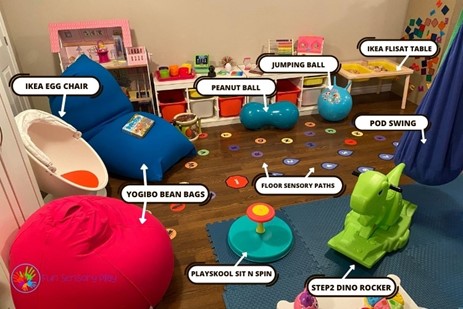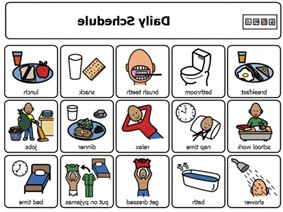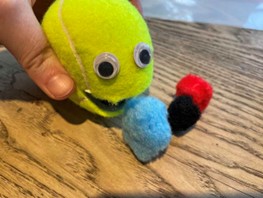Table of Contents
Our list of Occupational Therapy Tools
Occupational therapy plays a crucial role in supporting children with autism spectrum disorder (ASD) by enhancing their daily functioning and promoting independence. While professional therapists provide specialized interventions, there are various occupational therapy tools and activities that parents can incorporate into the home environment to further support their child’s development.
Sensory-Friendly Spaces

Children with autism often have sensory sensitivities, and creating a sensory-friendly environment is essential for their comfort and well-being. Designate specific areas in the home as sensory spaces, incorporating tools such as sensory bins filled with different textures, soft lighting, and comfortable seating. These spaces provide a calming retreat for the child when sensory stimulation becomes overwhelming.
Visual Supports


Visual supports are powerful tools for communication and routine management. Visual schedules, charts, and timers help children with autism understand expectations and transitions. Use visuals to outline daily routines, chores, or activities, providing a clear and predictable structure that can reduce anxiety and support better comprehension.
Fine Motor Skill Activities


Occupational therapists often work on improving fine motor skills in children with autism. Simple activities like playdough sculpting, using tweezers to pick up small objects, or engaging in arts and crafts can enhance fine motor coordination. These activities not only promote skill development but also offer opportunities for creative expression.
Gross Motor Skill Exercises


Incorporate activities that target gross motor skills, such as jumping on a trampoline, climbing, or engaging in interactive games that encourage coordination and balance. These exercises not only contribute to physical well-being but also support the development of motor planning and body awareness.
Social Skills Games


Children with autism may struggle with social interactions, making it essential to incorporate activities that focus on social skill development. Games like turn-taking, role-playing, and board games that encourage communication can enhance social engagement. Structured playdates or virtual interactions with peers also provide valuable opportunities for social practice.
Calming Tools


Teaching children with autism self-regulation techniques is a crucial aspect of occupational therapy. Calming tools such as sensory toys, weighted blankets, and fidget spinners can help children manage stress and anxiety. These tools provide sensory input that promotes relaxation and emotional regulation.
Communication Apps

For children with autism who struggle with verbal communication, augmentative and alternative communication (AAC) apps can be valuable tools. These apps support communication through visuals, symbols, and text, helping children express their needs and preferences effectively.
Visual Timers


Visual timers assist in managing transitions and time expectations. By using visual timers, children with autism can better understand the concept of time, reducing anxiety related to transitions between activities. This tool supports a smoother flow of daily routines.
Task Baskets
Create task baskets containing various activities related to daily routines or learning objectives. These baskets can include visual instructions, sensory tools, and any necessary materials. Task baskets promote independence and allow children to engage in structured activities with minimal supervision.
Sensory Diet Planning
Developing a sensory diet—a personalized schedule of sensory activities—can be a helpful strategy. Work with an occupational therapist to create a sensory diet that addresses the child’s specific sensory needs. Incorporate sensory activities throughout the day to maintain an optimal level of arousal.
Occupational Therapy at Transform Life

Integrating occupational therapy tools and activities at home empowers parents to actively support their children with autism in their developmental journey. While these tools are beneficial, it’s essential to work closely with occupational therapists to tailor interventions to the individual needs of each child. Creating a home environment that fosters sensory awareness, skill development, and social engagement contributes significantly to the overall well-being and progress of children with autism.Top of Form
Transform Life is a NDIS registered organisation that provide support for your autistic child, as well as support to you as a parent to best navigate the challenges your child and family face daily.
Book your consult with an experienced Occupational Therapist at Transform Life to explore how OT can support your autistic child and your family.










